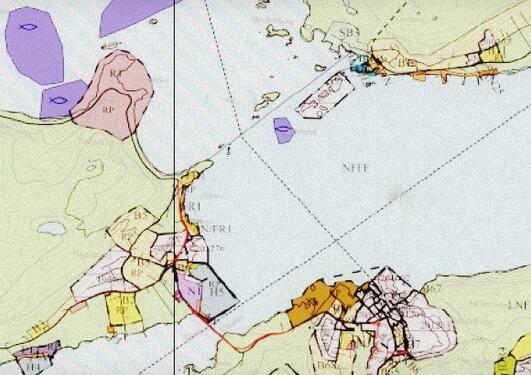GOVLAND – nytt forskningsprosjekt innen plan- og bygningsrett
Nytt prosjekt: ‘Legal governance in land use planning. Balance between national and municipal power and between private initiative and public control’ (GOVLAND)

Main content
Prosjektleder Ingunn Myklebust fikk i desember tilslag på søknad om bevilgning til et forskningsprosjekt under DEMOS-programmet i Norges forskningsråd. Prosjektet heter ‘Legal governance in land use planning. Balance between national and municipal power and between private initiative and public control’ (GOVLAND) og har en total kostnadsramme på 8,9 millioner kroner over fire år, hvorav drøyt 5,3 millioner er fra Forskningsrådet.
Prosjektet forskningsinnsats inkluderer en ph.d.-stipendiat, et godt forskningsbidrag fra UiB-geograf Håvard Haarstad, samt en del forskningstid for Ingunn og hennes professorkollega Sigrid Eskeland Schütz. Det skal også skrives to store masteroppgaver (60 studiepoeng) i tilknytning til prosjektet.
Samarbeidspartnere i Skottland og Canada
Ingunn er fornøyd med å starte det nye året med friske midlar som kan brukes til å øke kompetansen på kommunalrett og plan- og bygningsrett her ved fakultetet.
– Det er her mange problemstillingar som vi kan ta tak i innanfor ramma av dette prosjektet. Eit mål med prosjektet er også å få til god dialog og kunnskapsutveksling med samarbeidspartnarar i Skottland og Canada, men også tett samarbeid med forskarar ved andre fakultet og institutt ved Universitetet i Bergen, Høgskulen i Bergen, Havforskningsinstituttet og, ikkje minst, folk med røynsle frå praktisk forvaltning her i Bergen, forteller Ingunn.
Fra prosjektbeskrivelsen:
“Legal governance in land use planning [GOVLAND] will examine the core legal instruments for regulating the balance between national and municipal power in Norwegian land use planning. How the legal framework is and should be on land use planning, the interpretation of the rules and day by day management, can have a major impact on living conditions, infrastructure and sustainability. What are the legal requirements for effective, knowledge-based decision processes and what legal protection does local democracy have in a rapidly changing society, marked by Europeanisation, globalisation, privatisation, climate change and population growth? How can democracy and efficiency be balanced in municipal land use planning? The relative strength of public and private actors in the land use context is an integral part of the study.”
